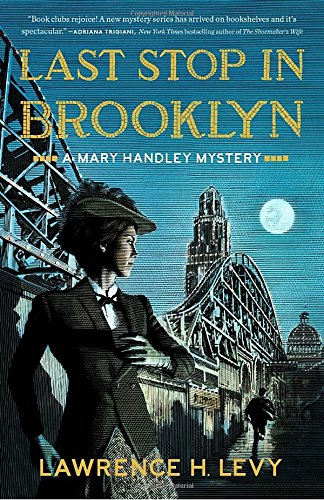Last Stop in Brooklyn
It’s summer 1894 in Brooklyn, and private detective Mary Handley is a busy woman. Not only has the brother of a convicted murderer asked her to reopen the case, a serial killer strikes in Coney Island, and an anarchist tries to blow up the multimillionaire Russell Sage. Before long, Mary discovers that these crimes—and many others—are linked, and it’s her job to uncover the truth and prevent further mayhem.
The reader might expect that a novel featuring a female detective during the Gilded Age would at least re-create a vibrant, burgeoning New York, if not a compelling protagonist who battles prejudice for doing a “man’s job”—and a disreputable job, at that. Not here. Levy appears willing to describe a person’s face, posture, or the office where she works, but nothing outside a close-up, such as a street or neighborhood. Knotty problems resolve right on schedule, so there’s little struggle or tension. So much happens, and at such a breathless pace, that the characters never have time to emerge as more than stick figures, penned in a single trait. There are righteous, earnest free-thinkers untainted by bigotry, and corrupt, greedy white supremacists. They both carry soapboxes.
If that duality sounds surprisingly contemporary, the language, repartee, and indifference to certain social conventions recall the 1960s, whereas the characters’ attention spans suggest the computer age. Mary seldom spends more than a second or two to reflect or process anything, no matter how much blood or pain is involved, and little of it seems to mark her.
As a result, Last Stop in Brooklyn has an inauthentic feel, whether as mystery or historical fiction. I doubt readers of either genre will be satisfied.










